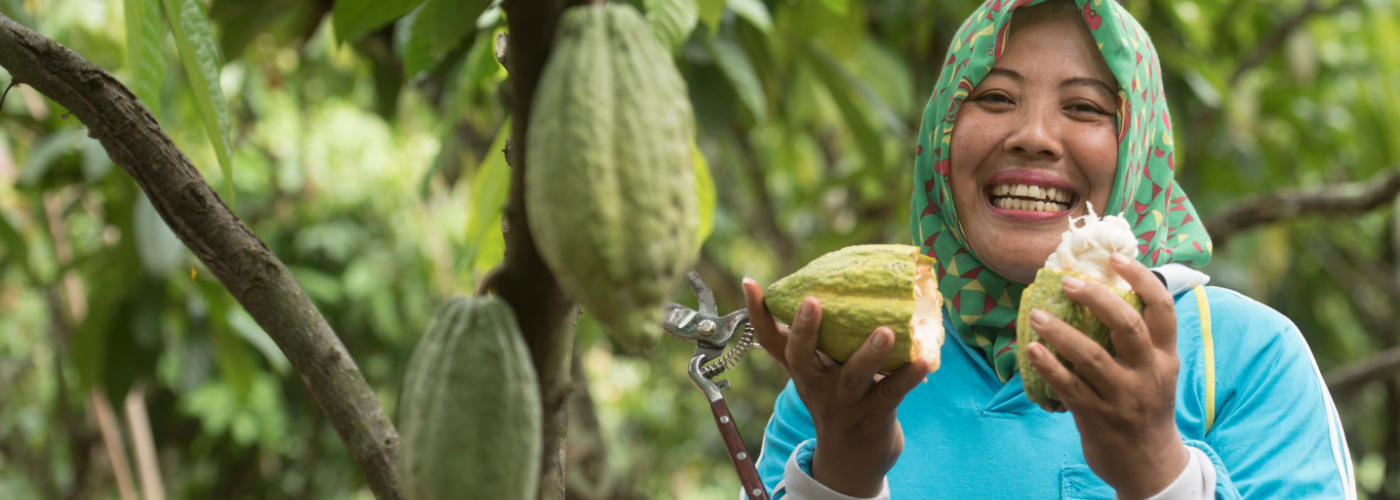USAID WEE CoP December Learning Event: Gender and Climate in Global Supply Chains: Private Sector Innovations in Practice (December 2023)
This event has passed
Event recording
Ask a Question About This Event
Image

On December 14, 2023, the USAID Women's Economic Empowerment Community of Practice (USAID WEE CoP) hosted “Gender and Climate in Global Supply Chains: Private Sector Innovations in Practice.” We appreciate the 106 attendees from 31 countries who joined this virtual event and would like to extend a special thank you to our speaker and panelists:
- Alice Allan, Collaboration Director at Business Fights Poverty and Team Leader on the Work and Opportunities for Women program, presented research on the importance of women workers, farmers, and entrepreneurs to effective business responses to climate crises and shared company-led interventions.
- Lisa Manley, Global Vice President of Sustainability at Mars, shared Mars’ approach to sustainability, the business case for integrating environmental and social agendas, and interventions Mars is taking forward in cocoa, mint, and shea value chains.
- Yaa Amekudzi, Ghana Country Lead, Cocoa Life program at Mondelēz International, outlined the business case for starting Cocoa Life, its programmatic approach, including the role of women, and the internal systems and structures that drive success in gender- and climate-related goals.
Here are three key takeaways from the discussion:
- The intersection of gender and climate is an emerging issue in supply chains. Companies risk leaving women behind and not capturing the full spectrum of gains if sustainability initiatives do not apply a gendered lens in the transition to a green economy. Women are heavily employed in global supply chains. However, they are often the most exploited, least well-paid, most affected by the impacts of climate change, and at highest risk of being left behind in the transition. At the same time, companies are seeking to reduce their indirect emissions due to increased reporting requirements, investor interest, and regulations. Evidence shows that intentionally incorporating women in climate adaptation and mitigation strategies and programs leads to better business and social outcomes (see below).
- Companies like Mars and Mondelēz International are pioneering applying integrated approaches and can offer practical and proven models. Particularly as the future of sectors like agriculture become increasingly female, women need to be at the center of the sustainability strategies. Models that facilitate women’s access to finance, technology, land, and decision-making are critical to closing gender gaps and fostering dialogue on climate-smart solutions. Green Village Savings and Loans Associations and payment for environmental services schemes are two examples of such models (see below).
- There is a growing body of guidance, tools, and resources to provide practical, business-based examples to help companies and practitioners move from commitments to actions. These resources emphasize that the path to net zero emissions is necessary, possible, and affordable but requires realistic steps to affect broad change. Decarbonization guidance includes keeping people at the center of climate reduction strategies; examining the intersections between emission hotspots and human rights risks; carefully assessing relationships with suppliers, procurement choices, products made, and opportunities for new business models; and considering carbon removal units. There is a need to increase this focus on women, both from a risk and opportunities lens, in the full spectrum of decarbonization.
For questions about this event, or to join the USAID WEE CoP, please contact: fundcop@banyanglobalgita.com.



